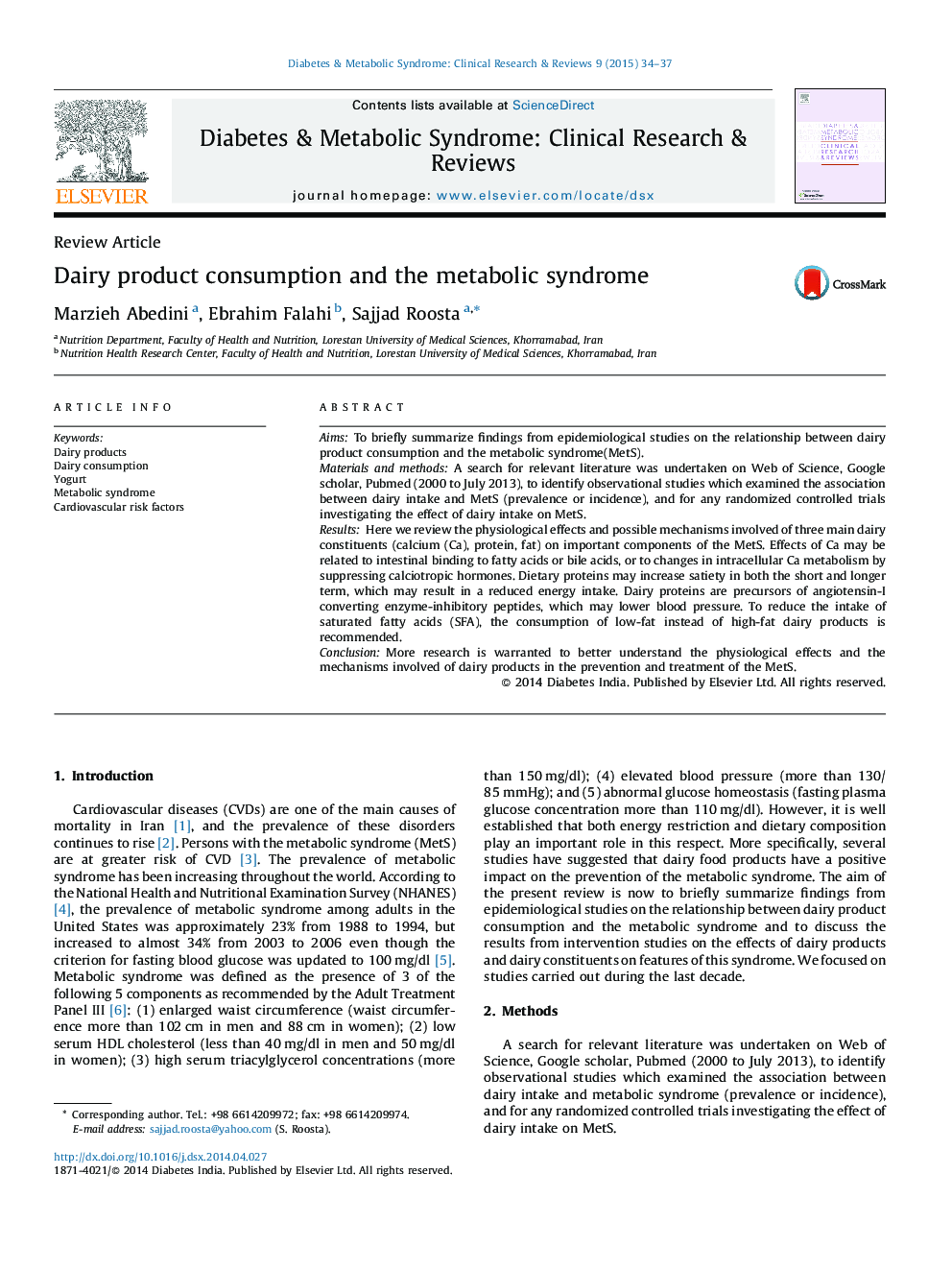| Article ID | Journal | Published Year | Pages | File Type |
|---|---|---|---|---|
| 2910147 | Diabetes & Metabolic Syndrome: Clinical Research & Reviews | 2015 | 4 Pages |
AimsTo briefly summarize findings from epidemiological studies on the relationship between dairy product consumption and the metabolic syndrome(MetS).Materials and methodsA search for relevant literature was undertaken on Web of Science, Google scholar, Pubmed (2000 to July 2013), to identify observational studies which examined the association between dairy intake and MetS (prevalence or incidence), and for any randomized controlled trials investigating the effect of dairy intake on MetS.ResultsHere we review the physiological effects and possible mechanisms involved of three main dairy constituents (calcium (Ca), protein, fat) on important components of the MetS. Effects of Ca may be related to intestinal binding to fatty acids or bile acids, or to changes in intracellular Ca metabolism by suppressing calciotropic hormones. Dietary proteins may increase satiety in both the short and longer term, which may result in a reduced energy intake. Dairy proteins are precursors of angiotensin-I converting enzyme-inhibitory peptides, which may lower blood pressure. To reduce the intake of saturated fatty acids (SFA), the consumption of low-fat instead of high-fat dairy products is recommended.ConclusionMore research is warranted to better understand the physiological effects and the mechanisms involved of dairy products in the prevention and treatment of the MetS.
